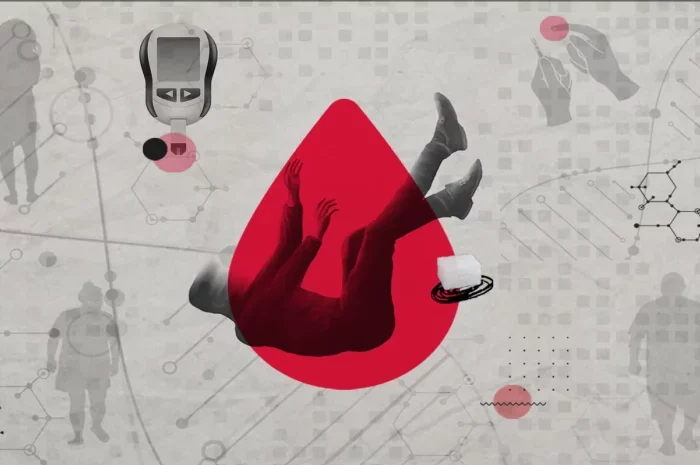Introduction
Type 1 diabetes is a chronic autoimmune condition characterized by the destruction of insulin-producing beta cells in the pancreas, leading to insulin deficiency. Diagnosing type 1 diabetes involves a series of tests aimed at assessing blood glucose levels, detecting autoantibodies, and evaluating metabolic markers. Early and accurate diagnosis is crucial for effective management and prevention of complications. In this article, we will delve into the various tests used in the diagnosis of type 1 diabetes, their significance, and the diagnostic criteria set by leading medical organizations.
Blood Glucose Testing
Blood glucose testing is fundamental in diagnosing diabetes, including type 1. Elevated blood glucose levels are indicative of impaired insulin production or utilization. The following blood glucose tests are commonly employed:
1. Fasting Plasma Glucose (FPG) Test: This test measures blood glucose levels after an overnight fast (at least 8 hours). A fasting plasma glucose level of 126 mg/dL (7.0 mmol/L) or higher on two separate occasions is indicative of diabetes.
2. Oral Glucose Tolerance Test (OGTT): The OGTT involves fasting blood glucose measurement followed by ingestion of a glucose solution. Blood glucose levels are then monitored at intervals (usually 2 hours). A blood glucose level exceeding 200 mg/dL (11.1 mmol/L) two hours after glucose ingestion confirms diabetes.
3. Random Plasma Glucose Test: This test measures blood glucose levels at any time of the day, regardless of the last meal. A random plasma glucose level exceeding 200 mg/dL (11.1 mmol/L) in the presence of diabetes symptoms (e.g., excessive thirst, frequent urination) suggests diabetes.
Autoantibody Testing
Type 1 diabetes is an autoimmune condition characterized by the presence of autoantibodies targeting pancreatic beta cells. Autoantibody testing aids in identifying individuals at risk of developing type 1 diabetes or those in the early stages of the disease. Common autoantibodies associated with type 1 diabetes include:
1. Islet Cell Cytoplasmic Autoantibodies (ICA)
2. Insulin Autoantibodies (IAA)
3. Glutamic Acid Decarboxylase Autoantibodies (GADA)
4. Insulinoma-Associated-2 Autoantibodies (IA-2A)
5. Zinc Transporter 8 Autoantibodies (ZnT8A)
Presence of one or more of these autoantibodies in conjunction with elevated blood glucose levels indicates an increased risk of developing type 1 diabetes.
C-Peptide Testing
C-peptide is a byproduct of insulin production and serves as a marker of endogenous insulin secretion. C-peptide testing helps differentiate between type 1 and type 2 diabetes, as individuals with type 1 diabetes typically have low or undetectable levels of C-peptide due to the destruction of pancreatic beta cells. Low levels of C-peptide in the presence of hyperglycemia support the diagnosis of type 1 diabetes.
HbA1c Testing
HbA1c (glycated hemoglobin) testing provides an indication of average blood glucose levels over the past 2-3 months. While not used as a primary diagnostic tool for type 1 diabetes, HbA1c levels can complement other diagnostic tests and aid in long-term monitoring of glycemic control. A HbA1c level of 6.5% or higher is indicative of diabetes, according to the American Diabetes Association (ADA) guidelines.
Genetic Testing
Genetic testing may be considered in individuals with a strong family history of type 1 diabetes or in cases where the diagnosis is uncertain. Human leukocyte antigen (HLA) typing can identify genetic predispositions to autoimmune diseases, including type 1 diabetes. However, genetic testing is not routinely performed for diagnostic purposes due to its limited predictive value and cost.
Diagnostic Criteria
The diagnostic criteria for type 1 diabetes are established by leading medical organizations such as the American Diabetes Association (ADA) and the World Health Organization (WHO). According to the ADA, the following criteria confirm the diagnosis of type 1 diabetes:
1. Symptoms of diabetes (polyuria, polydipsia, unexplained weight loss) plus casual plasma glucose concentration ≥ 200 mg/dL (11.1 mmol/L).
2. Fasting plasma glucose ≥ 126 mg/dL (7.0 mmol/L) after an overnight fast (no caloric intake for at least 8 hours).
3. Two-hour plasma glucose ≥ 200 mg/dL (11.1 mmol/L) during an OGTT.
In the absence of unequivocal hyperglycemia, the diagnosis of type 1 diabetes should be confirmed by repeat testing on a different day. Additionally, the presence of autoantibodies (ICA, IAA, GADA, IA-2A, ZnT8A) further supports the diagnosis of autoimmune-mediated type 1 diabetes.
Conclusion
The diagnosis of type 1 diabetes involves a comprehensive evaluation of blood glucose levels, autoantibodies, C-peptide levels, and, in some cases, genetic markers. Early detection of type 1 diabetes is essential for initiating appropriate management strategies, including insulin therapy and lifestyle modifications. Healthcare professionals play a crucial role in recognizing the signs and symptoms of diabetes, conducting diagnostic tests, and providing timely interventions to improve outcomes and reduce the risk of complications associated with type 1 diabetes. Collaboration between patients, healthcare providers, and researchers is essential for advancing diagnostic approaches and enhancing the quality of care for individuals living with type 1 diabetes.



























